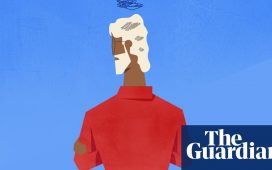Giving birth always takes some serious strength – but Clio Wood had to draw on more strength than many, because her daughter was almost strangled to death in the process.
Clio’s experience of having a child was so traumatic that it actually left her with severe PTSD, and that coupled with caring for a newborn, left her feeling as though she was drowning. She couldn’t cope.
But fitness and physical activity was a lifeline for Clio. Rediscovering her love of movement changed her mindset and brought her back from the brink. Now, she’s using what she learnt to help other mothers recover from traumatic birth experiences.
‘After a long labour, and general denial that childbirth was going to happen at all, I wasn’t managing the pain very well,’ Clio tells Metro.co.uk.
She recalls that when she gave birth, there were a few ‘cock-ups’ on the way to getting an epidural which meant she never received one, and things only got scarier from there.
‘It turned out that the umbilical cord was wrapped around my daughter’s neck, which meant that she was being strangled every time she tried to descend, or I tried to push,’ says Clio.
‘I had both ventouse and forceps with an episiotomy to get her out just in time without needing a caesarian section, but when the obstetrician removed the cord from around her neck, it snapped and she lost a lot of blood.
‘My baby was resusitated and I held her for 10 seconds before she was whisked away to NICU for a blood transfusion where she stayed for four days.’
This is not the blissful beginning to motherhood that Clio had pictured and been taught to expect. She was utterly shaken and deeply disturbed by what had happened, but she didn’t know how to face up to those emotions.
‘I thought I was fine… or I pretended I was fine,’ she explains. ‘I pushed down all the trauma and emotion and just got on with it, but I hated it.
‘I cried all the time, I felt like a failure, I didn’t have a clue what I was doing, and my depression re-surfaced.’
Clio describes it as being conflicted about her own mental and physical strength and even her ability to be a mother. And bottling up these feelings eventually manifested physically.
‘My need to protect myself meant I tensed up my whole body, including my pelvic floor for months, which led to a hypertonic pelvic floor and painful sex too – yet another test on top of everything else for my marriage,’ says Clio.
‘I remember the whole time as just being horrible and that I was floundering with no framework, advice or support to help me.’
Before falling pregnant and going this difficult birth, Clio had always been active. She loved movement and had even run marathons and taken part in 24-hour walks in the past. But diving back into fitness as a new mother proved incredibly hard.
‘I was desperate to feel like myself again,’ she says. ‘But of course,I ignored my own body and the limitations of a newborn’s schedule, so when I tried to exercise it was a disaster.
‘The first class I went to, I spent the whole thing in the changing rooms feeding. I also found that unless you have a one-to-one with a PT, you’re not going to get the personalised and realistic advice to you to rehabilitate and get strong.’
She found that many classes weren’t sensitive to the specific health needs of new mothers. She went to one class where she was expected to do star jumps and run around a park – something that just wasn’t possible because of the weakness in her pelvic floor.
‘The resources that are there are often hidden too,’ she adds. ‘I now know that it’s beneficial to get a women’s health physio check up post-natally, but I didn’t even know that such a thing existed, right when I needed it the most.’
Clio says that a huge problem is the lack of support and after-care for women who have been through traumatic births. She didn’t know where to turn to find the help she needed.
‘There are a lot of new resources and movements that are coming up now (Make Birth Better, and Pandas for example), but we can definitely do better to embed these more systematically,’ Clio tells us.
‘It’s only recently that the NHS is finally rolling out the six-week postnatal check for mums. Even if you don’t have a traumatic birth, you can suffer from pelvic floor issues, incontinence, intimacy issues and more.
‘Where is the advice for those mums (and dads)? Just because a little wetting yourself is common post-birth, doesn’t mean it’s normal – you can and should get help. For those mums struggling mentally, don’t you deserve to be at your best?
‘You’re amazing, you produced a child – you deserve to feel good about that. And what sort of example are we setting for, or learned behaviour are we passing on to, our kids if we don’t look after ourselves?’
Clio is so passionate about spreading this message for new mums that she started her own business to help mums who have been through what she has.
&Breathe Postnatal offers family fitness retreats focusing on rehab and strength and flexibility for mums and dads with childcare for little ones, the whole experience provides a healing context for the entire family, as they bond and open up about their experiences.
‘I was so alone, struggled a lot, and was pushed from pillar to post for the help I did try to get via the only route I knew – my GP,’ says Clio. ‘I wanted to retreat: to go away with my baby and my husband, feel better and stronger, have time for ourselves and have no pressure to do anything. So I started &Breathe.
Clio says it means everything to her to be able to move and be fit again. It makes her feel like herself.
‘It took my a long time to come to terms with, and be happy in, my own body,’ she says. ‘Remembering that peace and finding it again after I had my baby were so important to my own wellbeing.’
And true fitness means Clio is taking care of herself mentally as well as physically.
‘I need to have that time to remember that I’m worth taking care of. I also love it for developing my strength and flexibility, but helping me move well and be able to take care of myself, and enabling me to move without pain as I get older.’
She adds that we need to re-asses how we view the concept of ‘strong’.
‘I love the saying, “we need to be, know and raise strong women”, but what if we are already strong?
‘Isn’t it the societal framework that needs to change?
‘All women are strong in their own way, whether mentally or physically, quietly or loudly, subtly or with great fanfare, if we can acknowledge and champion that in ourselves, it would be our own best gift.’
Strong Women
Strong Women is a weekly series that champions diversity in the world of sport and fitness.
A Sport England study found that 40% of women were avoiding physical activity due to a fear of judgement.
But, contrary to the limited images we so often see, women of any age, size, race or ability can be active and enjoy sport and fitness.
We hope that by normalising diverse depictions of women who are fit, strong and love their bodies, we will empower all women to shed their self-consciousness when it comes to getting active.
Each week we talk to women who are redefining what it means to be strong and achieving incredible things.
MORE: Strong Women: Orphaned teen escapes abuse and childhood marriage to become karate champion
MORE: 84-year-old adventurer vows to keep travelling despite terminal lung cancer diagnosis
MORE: ‘Racism and damaging stereotypes’ prevent east Asian women from taking part in sport


















